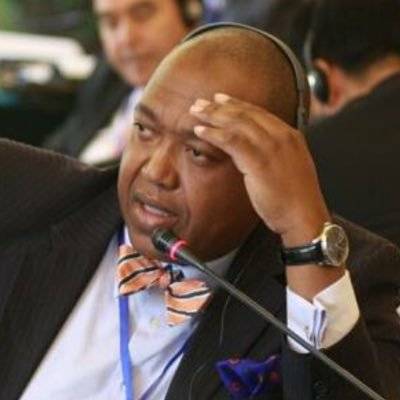After the 1967 Israeli-Arab war between Egypt, Jordan and Syria on one side and Israel on the other, the Arab countries sponsored and pushed for the United Nations Security Council Resolution 242. The UNSC Resolution 242 has been used over the years as the basis of negotiations between Arabs and Israel. The key component of the resolution is for Israel to give back all the territories it captured during the 1967 war. Until Israel surrendered these territories the Arab League agreed it would not have peace, nor recognition, nor negotiations with the state of Israel. However, Egypt and Jordan broke ranks in 1977 and 1994 respectively when they entered into negotiations, signed peace treaties and entered into formal relations with Israel.
On 13 August 2020 Israel and the United Arab Emirates (UAE) agreed to normalise relations making the UAE the third Arab country to sign a peace deal and normalise relations with Israel. The President of the US Donald Trump surprised many when he made the announcement at the White House. The formal signing of the agreement between Israel and the UAE and fanfare will take place in Washington, Trump confirmed.
According to Trump, Israel has, in turn, agreed to suspend the annexation of the West Bank. This latest action by an Arab League member state is yet another drawback to the Palestinian struggle and will further weaken the Arab League. It will be difficult to pressure Israel into equitable resolution with the Palestinians as more and more members break ranks. One of the ambitions of the Arab League was to establish a synchronised regional foreign policy position amongst Arab states. The Palestinian-Israeli peace negotiations have remained amongst the very few issues which has often achieved consensus at these platforms.
The recent, strong stand-alone foreign policy of the UAE regarding Israel and other issues in the region is likely to become a norm with other countries possibly following suit. Saudi Arabia has already indicated its intentions to normalise relations through its continual engagements with Israel. Israel and Saudi Arabia have reportedly engaged in secret meetings since last December, regarding including Saudi representatives in the Islamic Waqf Council at the Al-Aqsa Compound in Jerusalem.
Palestinians have scorned the recent normalisation of relations between the two countries. According to the Palestinians, “Palestine has been under continual annexation for decades. Annexation commenced in 1948 when thousands of Palestinians were driven out of their land, there was never suspension of annexation”.
Furthermore, what the normalisation of relations between the two countries communicates is the “endorsement of the continued bombing and suffocation of Palestine”. Trump’s announcement comes on the same day as Israel continues to bombard Gaza. Israel again attacked Hamas targets in the Gaza Strip on Thursday in response to what it said were continued launches of “explosive balloons” from the Palestinian territory. Normalisation also tacitly indicates the acceptance of the controversial recognition of Jerusalem as the capital of Israel.
READ: Suspending annexation will not cleanse UAE crown prince’s sins
The timing of the announcement of this agreement has raised a number of questions. First, the UAE seems to be playing into the hands of both Trump and Netanyahu. Both leaders are fighting for political survival in their own countries after fumbling in dealing with the challenges of COVID-19 in their countries. Trump’s inability to tackle Covid-19 has led to the deterioration of the US economy and high unemployment numbers. Could it be perhaps that the UAE is being used to give a lifeline to the political careers of both Trump and Netanyahu by agreeing to normalise relations with Israel?
Second, could this latest move be an attempt by both Trump and Netanyahu to save face from embarrassment as they backtrack on their resolve and promise to annex parts of the West Bank as part of the Deal of the Century?
Third, perhaps the UAE is preparing itself for a much bigger role in the region, that will by far surpass the role played both by the Arab League and the Gulf Cooperation Council (GCC). Fourth, earlier this month, the foreign ministers of longstanding regional foes Iran and the UAE held rare talks on several bilateral and regional issues, including the outbreak of coronavirus in the Middle East.
Trump has hinted that he is ready to make a deal with Iran and the world might just witness a deal soon between Iran and the US. Surprisingly, the UAE, Saudi Arabia, Bahrain, Egypt and the UAE blockaded Qatar in May 2017. They demanded that Qatar downgrade diplomatic relations with Iran, expel Iranian military representatives from Qatar, and limit economic cooperation amongst other things. Lastly, perhaps the normalisation of relations with Israel could be the preparation of the playing field for the UAE as it readies itself to enter the nuclear energy club.
The UAE announced earlier this month that it has successfully started up its Barakah nuclear energy plant, the first in the Arab world and a significant step toward the country’s goal of emissions-free electricity. Whatever the reasons certain things are certain, including that Trump will get his last significant photo op before the elections at the Rose Garden at the White House. The Emiratis will join a league of regional power brokers. Netanyahu will possibly extend his political lifeline, notwithstanding the backlash he currently faces in Israel, and it is the Palestinians who will be the ultimate losers.
![The UAE normalise ties with Israel - Cartoon [Sabaaneh/MiddleEastMonitor]](https://i0.wp.com/www.middleeastmonitor.com/wp-content/uploads/2020/07/Untitled-Artwork-1.jpg?resize=933%2C583&ssl=1)
The UAE normalise ties with Israel – Cartoon [Sabaaneh/MiddleEastMonitor]
The views expressed in this article belong to the author and do not necessarily reflect the editorial policy of Middle East Monitor.


![The city hall in the Israeli coastal city of Tel Aviv is lit up in the colours of the United Arab Emirates national flag on August 13, 2020. [JACK GUEZ/AFP via Getty Images]](https://i0.wp.com/www.middleeastmonitor.com/wp-content/uploads/2020/08/GettyImages-1228032377.jpg?fit=1200%2C800&ssl=1)









